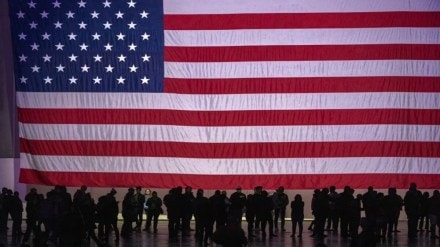The U.S. State Department has proposed new rules for the Diversity Visa (DV) Program, requiring foreign applicants to submit a scanned passport for lottery entry, to reduce fraud and enhance application process integrity.
What is the DV Program
The DV Program is administered by the Department of State and makes diversity visas available to foreigners who are “natives” of “low-admission” states, subject to certain numerical limitations.
The rule defines “low-admission states” as those with equal to or fewer than 50,000 natives admitted to the United States during the most recent five-year period.
DV Program New Rule
The new rule mandates all Diversity Visa applicants to submit a valid, unexpired passport number, a clear image or scan of the passport’s photo and signature pages, with failure to upload or use expired passports resulting in immediate disqualification.
The Department of State is proposing to amend regulations governing the Diversity Immigrant Visa Program to enhance its integrity and combat fraud.
The proposed changes would require petitioners to provide valid, unexpired passport information and a scan of the biographic and signature page uploaded to their electronic entry form, or otherwise indicate that they are exempt from this requirement. The electronic entry form also collects information about the names, dates, and places of birth of the petitioner’s spouse and children.
The Department plans to mandate that petitioners provide the unique serial number, name on the passport, the country or authority of issuance, the passport expiration date, and a scanned version of the passport’s biographic and signature page on DV entry forms.
DV Program Lottery
Millions of petitioners register annually for the Diversity Visa Program through an electronic entry form. After the close of the DV Program entry period, certain petitioners are selected through a randomized computer drawing, and selectees may apply for a DV or, if physically present in the United States and otherwise eligible, may apply to adjust status as a diversity immigrant.
Under section 201(e) of the INA, the number of available Diversity Visas each year is 55,000. Visa numbers made available to NACARA applicants in FY 2024 will result in a reduction of the DV-2025 annual limit to 54,894.
Certain other amendments will further reduce the DV-2025 annual limit to 52,056. DVs are divided among six geographic regions. No one country can receive more than seven percent of the available diversity visas in any one year
To be issued an immigrant visa as a diversity immigrant, individuals must establish their qualifications and eligibility for the visa in accordance with the INA and Department regulations.
US Visa Bulletin
In the US visa bulletin for September, immigrant numbers in the Diversity Visa category are available to qualified DV-2025 applicants chargeable to all regions/eligible countries as below.
When an allocation cut-off number is shown, visas are available only for applicants with DV regional lottery rank numbers below the specified allocation cut-off number:
Entitlement to immigrant status in the DV category lasts only through the end of the fiscal (visa) year for which the applicant is selected in the lottery. The year of entitlement for all applicants registered for the DV-2025 program ends as of September 30, 2025. DV visas may not be issued to DV-2025 applicants after that date.
Similarly, spouses and children accompanying or following to join DV-2025 principals are only entitled to derivative DV status until September 30, 2025. DV visa availability through the very end of FY-2025 cannot be taken for granted. Numbers could be exhausted before September 30.
Diversity Visa and Frauds
The US has historically encountered significant numbers of fraudulent entries for the DV Program each year, including entries submitted by third parties, some of them criminal enterprises, on behalf of individuals without their knowledge.
Unauthorized third parties will often then contact the unwitting individual, inform them of the opportunity to apply for a DV, and hold the entry information from the petitioner in exchange for payment or to coerce the petitioner to be complicit in certain acts of fraud.
Another form of fraud involves the creation or submission of false documents that the scammer claims will enhance a petitioner’s chances of selection or approval. This can include counterfeit educational documents, fake work experience letters, or manipulated photographs as evidence of a marital relationship.
One of the more egregious examples of large-scale third-party fraud occurred in 2012 when Embassy Dhaka (Bangladesh) reported through official channels that one IP address was responsible for more than 634,000 entries.
Similarly, a Department Office of the Inspector General (OIG) report highlighted Embassy Kyiv’s (Ukraine) account of organized fraud rings masquerading as travel agencies taking control of the DV Program in Ukraine.
